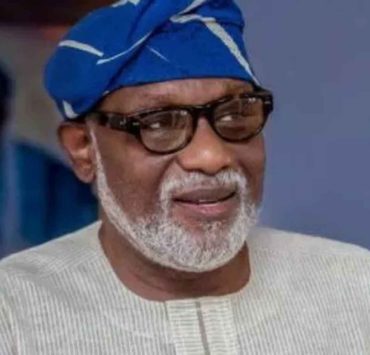Still in Pursuit of Judicial Reforms in Nigeria

Lawyard is a legal media and services platform that provides…
Just a few weeks ago, the Attorney General of the Federation (AGF) and Minister of Justice, Lateef Fagbemi (SAN) gathered members of the legal profession alongside other critical stakeholders in the justice sector at the Federal Capital Territory (FCT) to fashion out what was termed a clear strategy that will reposition and strengthen the justice sector.
Indeed the organisers of that programme noted that the move was to ensure greater access, transparency, accountability, fairness and efficiency in the entrenchment of the rule of law in Nigeria and administration of justice in general.
In the same vein, the Nigerian Bar Association Section on Legal Practice (NBA-SLP), also recently gathered the crème de la crème of the profession in the ancient city of Kano, also in a bid to uproot encumbrances to effective administration of justice in the country.
Although the occasion was the 2024 Annual Conference of the NBA-SLP, the theme, “Administration of Justice in Nigeria: Challenges and Reforms” was a reflection of the concerns about the state of justice administration in the country, and the need for urgent reforms.
According to the Chairman of the NBA-SLP, Mrs. Boma Alabi (SAN), the theme of the conference reflected the ongoing battle to continually improve on the practice of the legal profession to ensure that justice is delivered expeditiously.
Alabi further observed that: “The conference aimed to critically assess the current state of the justice system, identify its most pressing challenges, and propose innovative solutions to foster a more efficient, equitable, and accessible legal framework for all Nigerians”.
In a welcome address, the Chairman of the Kano branch of the NBA, Sagir Gezawa, pointed out that there was no better time to discuss the challenges of administration of justice in Nigeria than now.
He cited public perception, political interference as well as the need to strengthen the system as reasons for the theme.
Similarly, the Chairman of the Conference Planning Committee, Dr. Sulaiman Usman (SAN), who observed that it is the responsibility of legal practitioners to ensure the fair and efficient administration of justice however, noted that the country’s justice system currently “faces a myriad of challenges that hinders its effectiveness”.
He listed them as: “The scourge of corruption to crippling backlog of cases, from inadequate funding to the lack of public confidence.” Usman added that it was during such conferences that they could find an opportunity to come together and engage in critical discussions so as to “chart a course towards meaningful reforms”.
The Chief Judge of Kano State, Justice Dije Aboki and the President of the National Industrial Court of Nigeria (NICN), Justice Benedict Kanyip, were among judges and lawyers who also clamoured for urgent reforms not just for the sake of achieving speedy and quality justice delivery but to also restore the dwindling respect and confidence of litigants and Nigerians in general.
“As we gather here, we must engage in a candid dialogue about the state of justice in our great nation,” Aboki said.
She added: “The administration of justice in Nigeria faces numerous challenges that demand our immediate attention. On the part of the judiciary, one of the foremost challenges is the issue of judicial independence.
“For justice to be truly impartial, the judiciary must be free from undue influence and interference from other arms of government. This independence is not for the benefit of the judiciary alone but is the bedrock of fair and equitable justice delivery to the citizens we serve.”
The Kano CJ stressed that both the bar and the bench must continuously strive to promote the achievement of their independence to maintain the integrity of the judicial system. In addition, she urged that the NBA as a pressure group, is not meant only to advocate the interest of lawyers but also to serve as a mouthpiece for the judiciary, adding that more should be done in advocating for judicial independence and autonomy.
Besides the issue of judicial independence, another pressing challenge she identified was the chronic backlog of cases in courts, wherein she noted that the saying “justice delayed is justice denied” rings true in that context. Others, she said, are the lack of accountability as well as unethical practices by lawyers.
Putting the current state of administration of justice in proper perspective, the President of the National Industrial Court recalled the recent warning of Prof. Ademola Popoola of the Obafemi Awolowo University, Ile Ife, that “threats to the rule of law and independence of the judiciary” from various sources if not quickly arrested would spell doom for the judiciary and by extension the country.
According to Popoola: “Unless the Nigerian judiciary transmogrifier as the dictates of globalisation, information technology, development, etc impact on national laws, we may find ourselves left out of the scheme of things.”
Buttressing this point, the NICN president cited a former governor’s description of the Nigerian judiciary as “pathetic, too slow and often on the side of crooks rather than on the side of government or the innocent.”
Kanyip also recalled some senior lawyers describing courts as supermarkets where only the rich go to shop and that “Nigerian Judiciary is Crooked”.
He added that the most recent are the descriptions of the Supreme Court as “now having judicial bandits and being the worst in 45 years”. Kanyip concluded that when insult takes the place of, or is disguised as, criticism, then the administration of justice and justice delivery are seriously imperilled.
Based on the above scenario, participants immersed themselves into work for three days trying to proffer solutions to the myriads of problems confronting the justice sector. Various issues and topics were discussed with far-reaching recommendations contained in a communique signed by the Chairman of the NBA-SLP, Alabi.
Recognising the pivotal role of the judiciary in the administration of justice, the conference emphasised the need to enhance judicial capacity. This, he said , includes providing judges with continuous legal education on emerging legal issues, expanding research support to enable informed decision-making, and ensuring that judges are adequately remunerated to attract and retain top legal talent.
Besides, the conference also discussed the importance of judicial diversity and the need to appoint judges who reflect the diversity of Nigerian society.
On the issue of ethical standards, the conference acknowledged the growing concern over the erosion of public trust in the legal profession due to unethical practices by some lawyers.
Participants called for stricter enforcement of ethical codes of conduct and disciplinary measures for lawyers who engage in frivolous litigation, delay tactics, and other unethical practices that undermine the integrity of the legal system.
The conference also proposed the establishment of a Judicial Public Complaints Committee to investigate allegations of judicial misconduct and promote accountability within the judiciary.
On the issue of technological innovation and expanding access to justice, the conference focused on harnessing the transformative power of technology to modernise the justice system and improve access to justice for all Nigerians.
By embracing digital solutions, the judiciary said it can reduce costs, improve case management, and make justice more accessible to citizens, particularly those in remote areas.
Consequently, the conference recommended the adoption of technological innovations in the justice system; acceleration of the digitalisation of court processes through electronic filing, online case management, and virtual hearings.
In addition, the conference called for investment in the necessary infrastructure and technology to support digital transformation as well as the provision of training and support to legal professionals and court staff to ensure effective use of digital tools.
Lawyard is a legal media and services platform that provides enlightenment and access to legal services to members of the public (individuals and businesses) while also availing lawyers of needed information on new trends and resources in various areas of practice.













